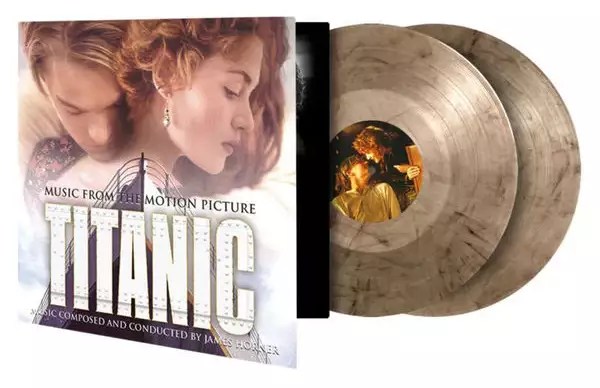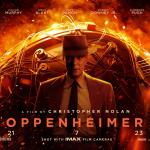
1. A GOOD MOVIE NEEDS A GOOD SCORE
Scores

So let’s start by settling scores with Nollywood. Every good movie needs a good score or theme- an original instrumental or choral accompaniment. This could be just a recognizable tune associated with the movie, or it could come with a sound for every occasion, or even music motifs for individual characters and moods. This is how sophisticated Hollywood has gotten with movie themes and scores. They understand its power as a tool for creating an immersive, memorable movie experience. On the other hand, African movies, with Nollywood as a case study, are yet to fully appreciate the power. To fully grasp their impact, here are some of the most memorable scores in movie history, as determined by Watchmojo.
https://www.watchmojo.com/video/top-20-most-iconic-instrumental-movie-scores-of-all-time
It is almost incontrovertible that these scores contributed significantly to the success of their movies, though impact levels may vary. They boost box office results. Scores can whip up sentiments that the movie alone might struggle to achieve. Who can’t remember John Williams’ iconic scores for Star Wars or Superman? Or can’t hum the score for Mission Impossible, Beverly Hills Cops, or The Good, The Bad, & The Ugly, though these were decades ago? These scores have survived the test of time. Many have never watched these old classics but are drawn to them through these themes. Heck, people might forget old movie plots but they keep scores.

We need to reach a level where music score composers are a recognized profession in Nollywood and can sustain themselves through their art. Renowned score composers like the late, great Henry Mancini (Pink Panther score), the legend John Williams (Star Wars, E.T., Superman etc.), James Horner (Titanic, Braveheart), and Hans Zimmer (The Lion King, Gladiator, Dune)- notable for integrating electronic music sounds with traditional orchestral arrangements- are all household names now.
The movie score is an untapped music genre in Africa and just like great artists have benefactors/patrons, great directors align with great composers for their movies. Spielberg, for example, used John Williams for many of his hit movies, James Cameron worked with James Horner, and Chris Nolan with Hans Zimmer, who is also the head of the movie music division at DreamWorks Pictures. This is food for thought for the Kunle Afolayans and Fred Amatas out there. The great musicologist, Laz Ekwueme (now a nonagenarian) was never used; he was rumoured to have composed the Things Fall Apart theme song but other circles mention one Stanley Nnanna Okoro. The fact that we don’t even have clear records of these composers, while Hollywood’s records go back almost a century, speaks volumes.
Theme songs
Some successful theme songs and soundtracks have ended up being more popular or endearing than the movies themselves. Examples? I Will Always Love You by Whitney, End of the Road by Boyz II Men… you might even struggle to remember the movies associated with the tracks. But the beauty of it all is that the song draws a whole new generation of fans to the movie. Theme songs have a way of pulling the crowd. Here are a few more…

While movies can age poorly with time, the memories and emotions a theme song evokes can keep the movie evergreen and fondly remembered. This is an area of movie-making that Nollywood has failed to fully exploit. Where they have tried, the theme songs or musical scores have not really been memorable.
It goes without saying that the movie itself contributes significantly to the emotional gravitas of a score or theme song. When well-handled, they should work in harmony. When they don’t, everything falls miserably flat. Old NTA television programmes like Cock Crow At Dawn and Things Fall Apart used theme songs successfully, creating a mood for the series. Nollywood movies these days don’t use it so effectively. Throwing a few tracks in a movie or creating one that desperately sums up the movie or main character just patronizes the viewer.
In Summary
We all know the impact of James Horner’s entire musical score on Titanic‘s success. It became the best-selling orchestral movie soundtrack of all time. Celine Dion’s award-winning vocals on the motif My Heart Will Go On made it the second-best-selling single by a woman in music history. It is hard to extricate the music from this movie as both flow into each other organically. It is even harder to identify which one was the greater culprit in whipping up emotions associated with this movie. This is because both score and movie totally complement each other. The same can be said of John William’s classic Superman score, Rocky III’s adrenaline-rushing Eye of the Tiger, The Avengers‘ theme song by Alan Silvestri, and even the James Bond theme song. These examples add a certain x-factor to their movies.
Timing is essential. If a cue fails to arrive at the right time in a scene or fails to match or augment the scene’s mood, it is best not delivered. In these movies, timing was impeccable and the music never felt gratuitous. That’s part of the reason why these movies are some of the highest-selling of all time. There’s a profound lesson to be learnt here in movie production.
That said, nowadays, directors/producers don’t have to contract a popular musician(s) for a soundtrack. While this was popular in the 80s and 90s (e.g., the Boomerang OST album), it became quite expensive and blew movie budgets sky high. Nowadays, just a simple, apt score can work the magic. It can be a memorable musical orchestration or just an appropriate, catchy tune like in The Godfather. Even after the film ends, the sound still resonates, and you hum it. This leaves the movie ingrained in your subconscious and it never leaves you. Inadvertently, you ‘spread the gospel’ as you hum the score. Some make it into a ringtone. This is all part of grand design marketing.
If you have a good movie, a good score makes it great, sets the tone, and it becomes part of pop culture.
STAY TUNED FOR NUMBER TWO!


movie buff
Discover more from Teambooktu
Subscribe to get the latest posts sent to your email.























To be fair to early Nollywood moves, they attempted to create scores for their movies. The instrumental suspense sound is one of them while the lamentation style sounds with a vernacular tone is another. But I agree! It hasn’t been done with great intentionality.